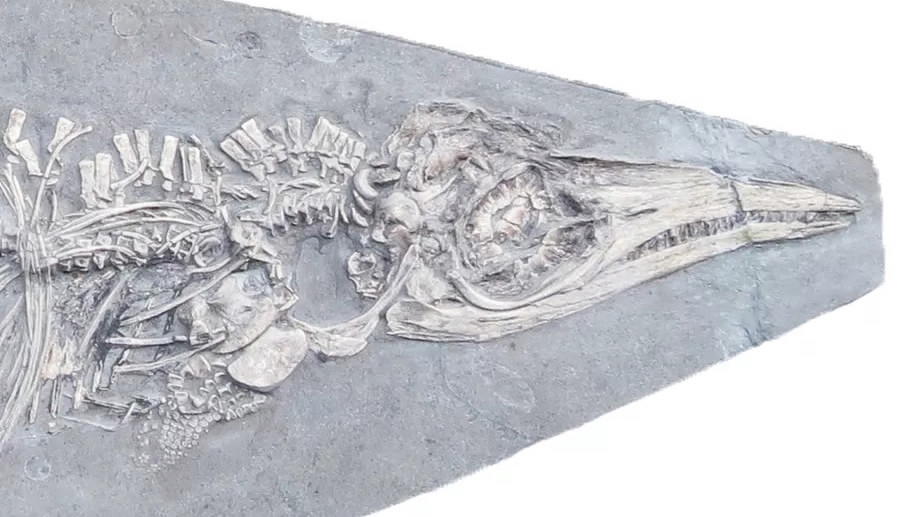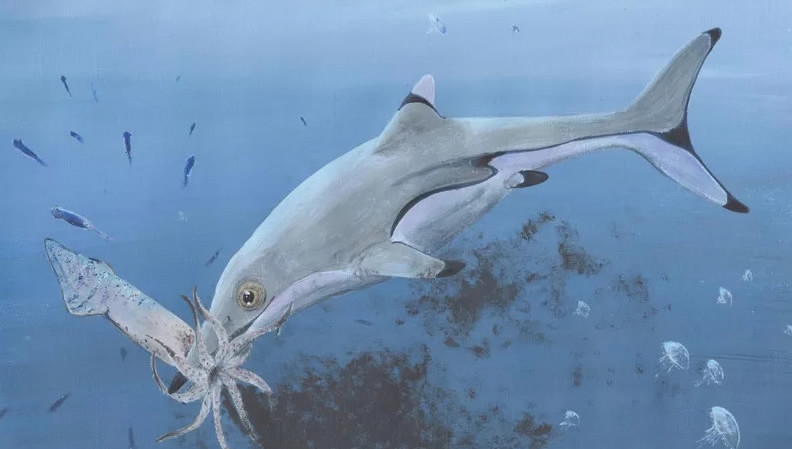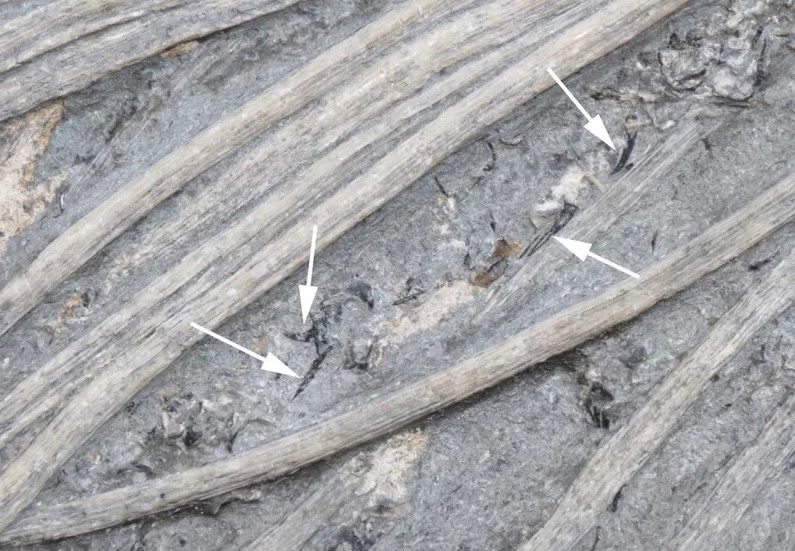
Tech & Sci
14:53, 08-Oct-2017
Undigested squid found in belly of Jurassic baby reptile
By Xie Zhenqi

A baby ichthyosaur died abruptly after gorging on squid 250 million years ago, scientists have determined after examining the fossilized marine reptile and its belly full of undigested prehistoric calamari.
Paleontologist Dean Lomax at the University of Birmingham’s Lapworth Museum of Geology reached that conclusion after studying the fossil from the early Jurassic period.

An illustration of an ichthyosaur eating squid /University of Birmingham Photo
An illustration of an ichthyosaur eating squid /University of Birmingham Photo
“I recognized the various tiny, 'hook-shaped' pieces (tentacles) between the ribs,” Lomax said in an email. He and his colleague Nigel Larkin published their findings in the journal Historical Biology last week.
What they also learned from the two-foot-long skeleton and the tiny fossils embedded in the stone were that the ichthyosaur was the first fossilized newborn of its species, which could grow to 15 feet in length during adulthood.
“I was very excited to uncover the ichthyosaurs' last meal, especially as it is different to what has been found in another species of ichthyosaur,” Lomax said.

A closeup of the squid hooklets (chitinous barbs on the arms of some squid species) preserved between the ribs of this baby ichthyosaur /University of Birmingham Photo
A closeup of the squid hooklets (chitinous barbs on the arms of some squid species) preserved between the ribs of this baby ichthyosaur /University of Birmingham Photo
Other species of baby ichthyosaur fossils have been spotted with fish scales in their guts before, signaling that certain species may have had distinct food preferences.
Squid, a common seafood today, may have evolved from some of the earliest known mollusks on Earth some 60 million years ago. However, scientists have been unable to prove that theory because of a lack of remains of early squid.
8164km

SITEMAP
Copyright © 2018 CGTN. Beijing ICP prepared NO.16065310-3
Copyright © 2018 CGTN. Beijing ICP prepared NO.16065310-3